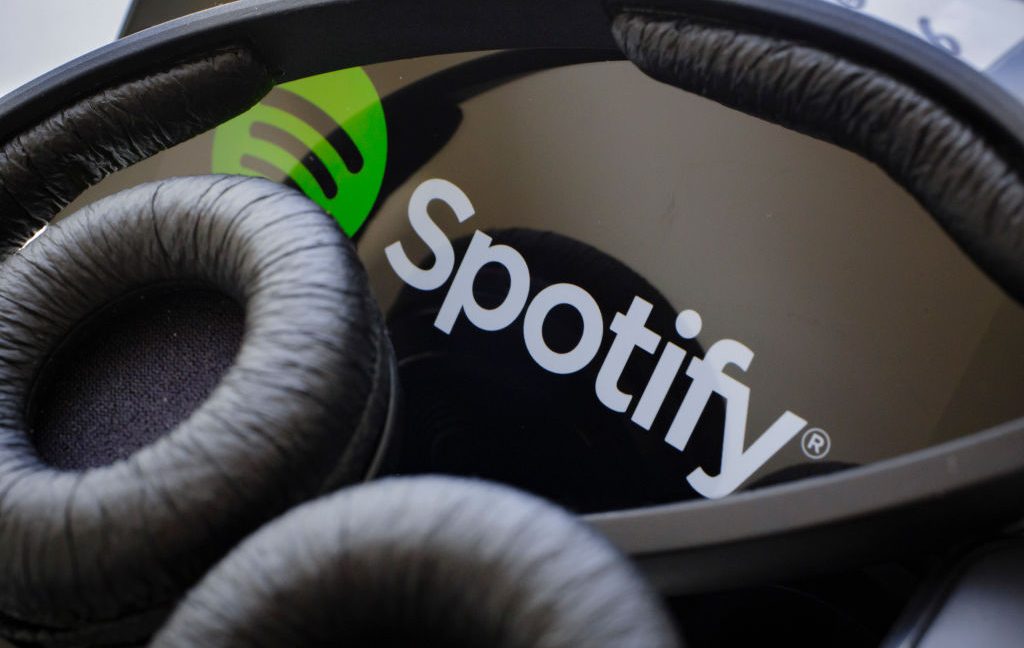
Credit: Thomas Trutschel via Getty
Making art used to be a uniquely human endeavor, but machines have learned to distill human creativity with generative AI. Whether that content counts as "art" depends on who you ask, but Spotify doesn't discriminate. A new band called The Velvet Sundown debuted on Spotify this month and has already amassed more than half a million listeners. But by all appearances, The Velvet Sundown is not a real band—it's AI.
While many artists are vehemently opposed to using AI, some have leaned into the trend to assist with music production. However, it doesn't seem like there's an artist behind this group. In less than a month, The Velvet Sundown has released two albums on Spotify, titled "Floating On Echoes" and "Dust and Silence." A third album is releasing in two weeks. The tracks have a classic rock vibe with a cacophony of echoey instruments and a dash of autotune. If one of these songs came up in a mix, you might not notice anything is amiss. Listen to one after another, though, and the bland muddiness exposes them as a machine creation.
Some listeners began to have doubts about The Velvet Sundown's existence over the past week, with multiple Reddit and X threads pointing out the lack of verifiable information on the band. The bio lists four members, none of whom appear to exist outside of The Velvet Sundown's album listings and social media. The group's songs have been mysteriously added to a large number of user-created playlists, which has helped swell its listener base in a few short weeks. When Spotify users began noticing The Velvet Sundown's apparent use of AI, the profile had around 300,000 listeners. It's now over 500,000 in less than a week.
When The Velvet Sundown set up an Instagram account on June 27, all doubts were laid to rest—these "people" are obviously AI. We may be past the era of being able to identify AI by counting fingers, but there are plenty of weird inconsistencies in these pics. In one Instagram post, the band claims to have gotten burgers to celebrate the success of the first two albums, but there are too many burgers and too few plates, and the food and drink are placed seemingly at random around the table. The band members themselves also have that unrealistically smooth and symmetrical look we see in AI-generated images.
View this post on InstagramA post shared by The Velvet Sundown (@thevelvetsundownband)
The Velvet Sundown is not the only AI-generated act to invade streaming services. In a recent episode of Last Week Tonight focused on AI, host John Oliver highlighted an AI band called The Devil Inside that has released 10 albums in the past two years. Interestingly, both The Velvet Sundown and The Devil Inside seem to have many songs that reference dust and wind. That may simply be an artifact of repetition in music-generation models, or they may both be products of the same AI slop manufacturer.
Labeling AI
Spotify is happy to accept AI music and does not require listings to reveal if a song was created entirely by a machine. The Velvet Sundown is also available on other streaming platforms, including Deezer, which takes a harder line on AI. According to NME, the band's bio on Deezer includes a disclaimer that "Some tracks on this album may have been created using artificial intelligence." NME also notes that the Spotify bio previously attributed a flattering description of the band's music to Billboard. The flattery remains, but Billboard's name has been removed.
Currently, the band's Instagram is flooded with comments calling out the use of AI, but the day may come when it's not so easy to tell. There's nothing inherently wrong with someone wanting to listen to an AI-generated song—there are a ton of YouTube channels that stream essentially infinite AI music. It's interesting technology, and the output has come a long way since the original Google MusicLM and OpenAI Jukebox models debuted a few years back. But people should know what is and is not AI.
Art created by living, breathing people says something about the world—it's a manifestation of the human condition. The machinations of a machine, however, don't really matter in the same way. An AI-generated song might have a nice vibe, but it's just a remix of actual art assembled by a randomized algorithm. Google and others are endeavoring to create verifiable watermarks for AI images, but we may need something similar for audio if the largest music streamers continue to allow AI songs without disclosure.

-
 C114 Communication Network
C114 Communication Network -
 Communication Home
Communication Home


